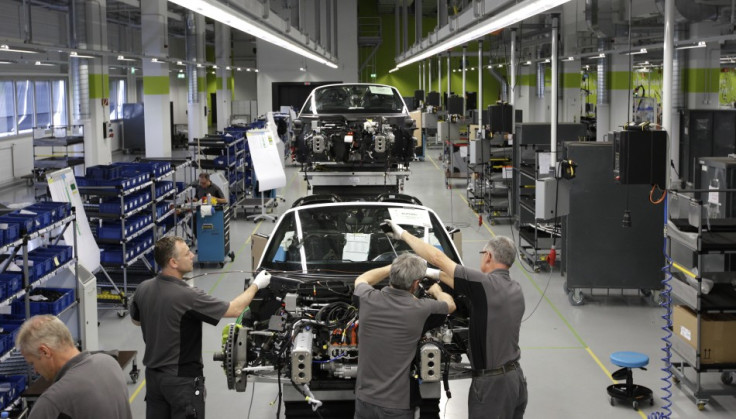Eurozone to Move Out of Recession in Q3 as Private Sector Activity Expands

Eurozone's private industry has returned to growth in July, for the first time in 18 months, suggesting that the area's lengthy recession is coming to an end.
The Markit flash Eurozone purchasing managers' composite output index rose to 50.4 in July from 48.7 in June. A reading above 50 indicates an expansion in activity.
Both manufacturing and services industries showed increased activity during the month. Markit indicated a "broad-based upturn" in manufacturing and "signs of stabilisation" in the services sector.
The single-currency region's manufacturing purchasing managers' index (PMI) rose to 50.1 from 48.8 in June. Economists estimated a reading of 49.1. The services PMI showed a reading of 49.6 in July, better than the previous month's 48.3.
"The best PMI reading for one-and-a-half years provides encouraging evidence to suggest that the euro area could - at long last - pull out of its recession in the third quarter," Chris Williamson, Chief Economist at Markit said in a statement.
"The revival is being led by a broad-based upturn in manufacturing, where growth surged to a two-year high. Increased goods production was reported in Germany, France and across the rest of the region as a whole."
Germany and France
Germany's composite index rose to a five-month high at 52.8 from 50.4 in June. Europe's largest economy witnessed its manufacturing and services sectors expanding during the month.
"The stronger performance of the German private sector in July appears to have been driven by improvements in domestic business and consumer spending," said Tim Moore, Senior Economist at Markit.
Meanwhile in France, the private sector moved closer to stabilisation, with the composite index rising to a 17-month high at 48.8. Services activity in the country rose an 11-month high at 48.3, while manufacturing activity showed the best reading in 17 months at 49.8.
"With key variables such as new business, employment and backlogs of work all showing more modest declines, and service providers reporting a more positive outlook regarding future activity, momentum seems to be heading in the right direction and could herald a return to growth in the second half of the year," said Jack Kennedy, Senior Economist at Markit.
Outside of the two biggest member states output fell only marginally, posting the smallest decline since June 2011, according to Markit.
Sustained Growth
Despite weak employment that continued to fall in July, economists are suggesting that the modest pickup in growth momentum in the private sector will be sustained over the coming months.
The ECB bank lending survey released today suggests that demand conditions improved in the second quarter, although still weak.
For the long term, the region has to fill huge output gaps to achieve sustainable growth, according to economists.
"Despite the lift in the level of PMIs towards long-term trend, risks remain that the improvement will not be sustained. For the large output gaps to be closed will require that higher than current levels will need to be sustained for some time," said analysts at ANZ Research.
Economic output in the eurozone has been declining since the final quarter of 2011, the longest recession since the single currency region was formed. The region is due to release its second-quarter GDP data in August.
© Copyright IBTimes 2025. All rights reserved.






















